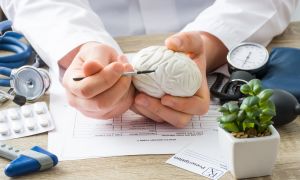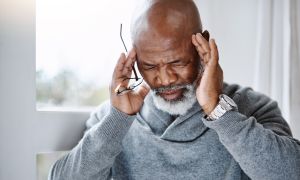If the flow of oxygen-rich blood to a portion of the brain is blocked, a stroke occurs—and brain cells can begin to die after just a few minutes. Sudden bleeding in the brain may also cause a stroke. Symptoms include sudden weakness, paralysis or numbness of the face, arms or legs; trouble speaking, understanding speech and seeing. A stroke is a serious medical condition requiring emergency care. It can cause lasting brain damage, long-term disability or even death.
Emergency care for stroke may involve injecting tissue plasminogen activator (tPA) into a vein in your arm. TPA is a drug that can break up blood clots in the arteries of the brain. But it must be given within four hours to be effective, and therefore should be given as soon as possible.
If you suspect you or someone else is experiencing the symptoms of a stroke, dial 911 immediately. Don't drive to the hospital or let someone drive you—medical personnel in an ambulance can begin this lifesaving treatment on the way to the emergency room.
A stroke is a life-threatening emergency. It is the third leading cause of death and number one cause of long-term disability in the United States. Just as with a heart attack, seconds count in stroke treatment. Quick treatment increases survival odds and is the best chance for limiting damage to the brain.
If you think you may be having a stroke, there are two things you can do to improve your odds for a good outcome.
- First, dial 911.
- Second, tell the paramedics in the ambulance and the doctors and other medical professionals that you come into contact with at the hospital that you think you may be having a stroke. This alerts them of the potential seriousness of your symptoms and helps guide initial diagnosis and treatment.
Continue Learning about Stroke
Important: This content reflects information from various individuals and organizations and may offer alternative or opposing points of view. It should not be used for medical advice, diagnosis or treatment. As always, you should consult with your healthcare provider about your specific health needs.




